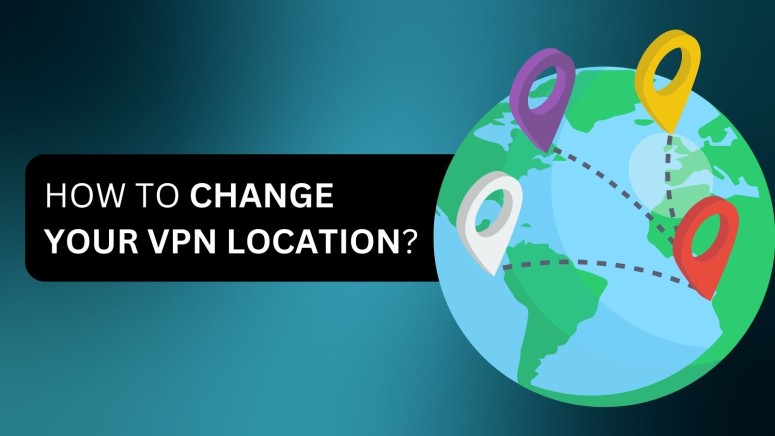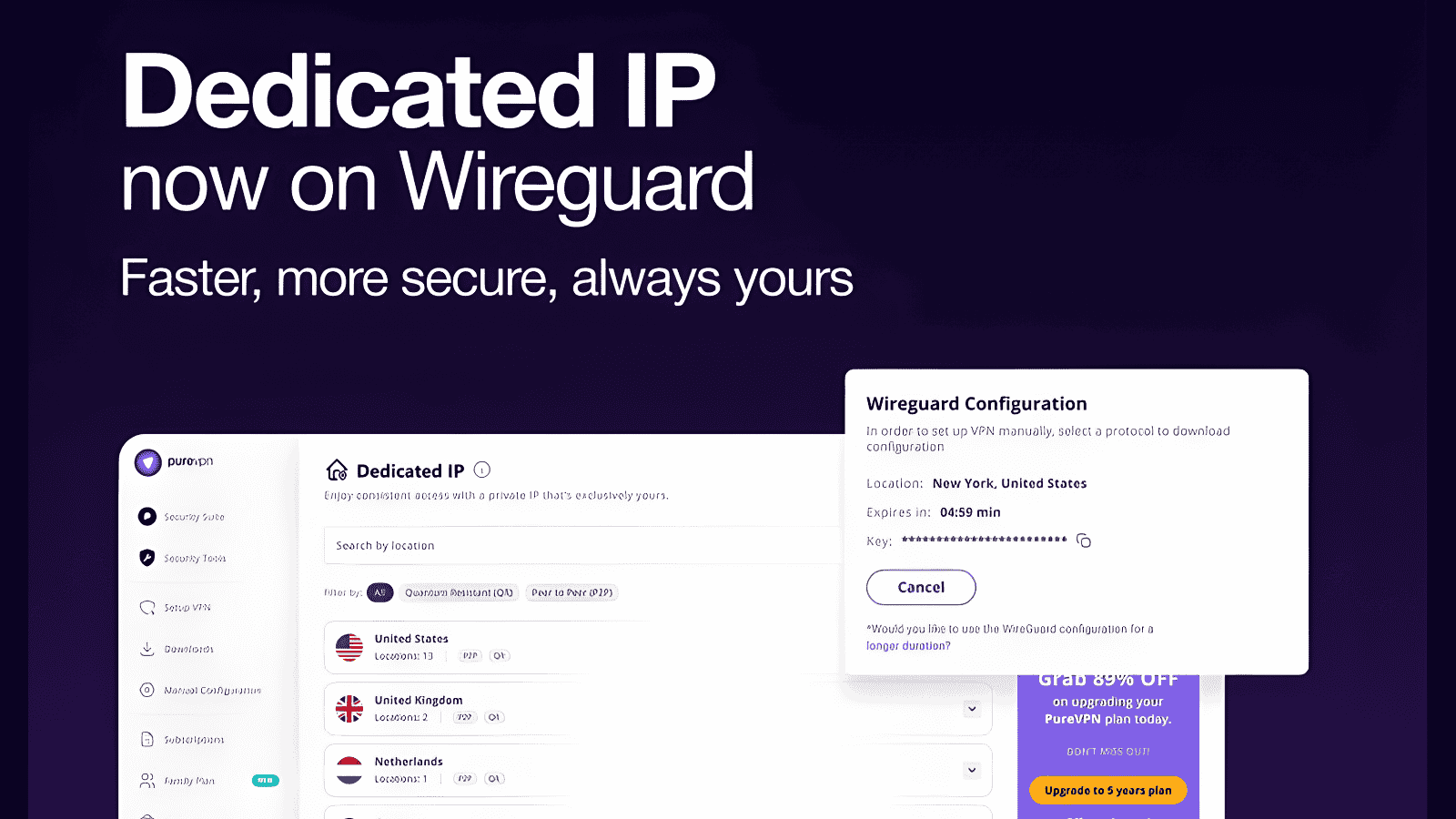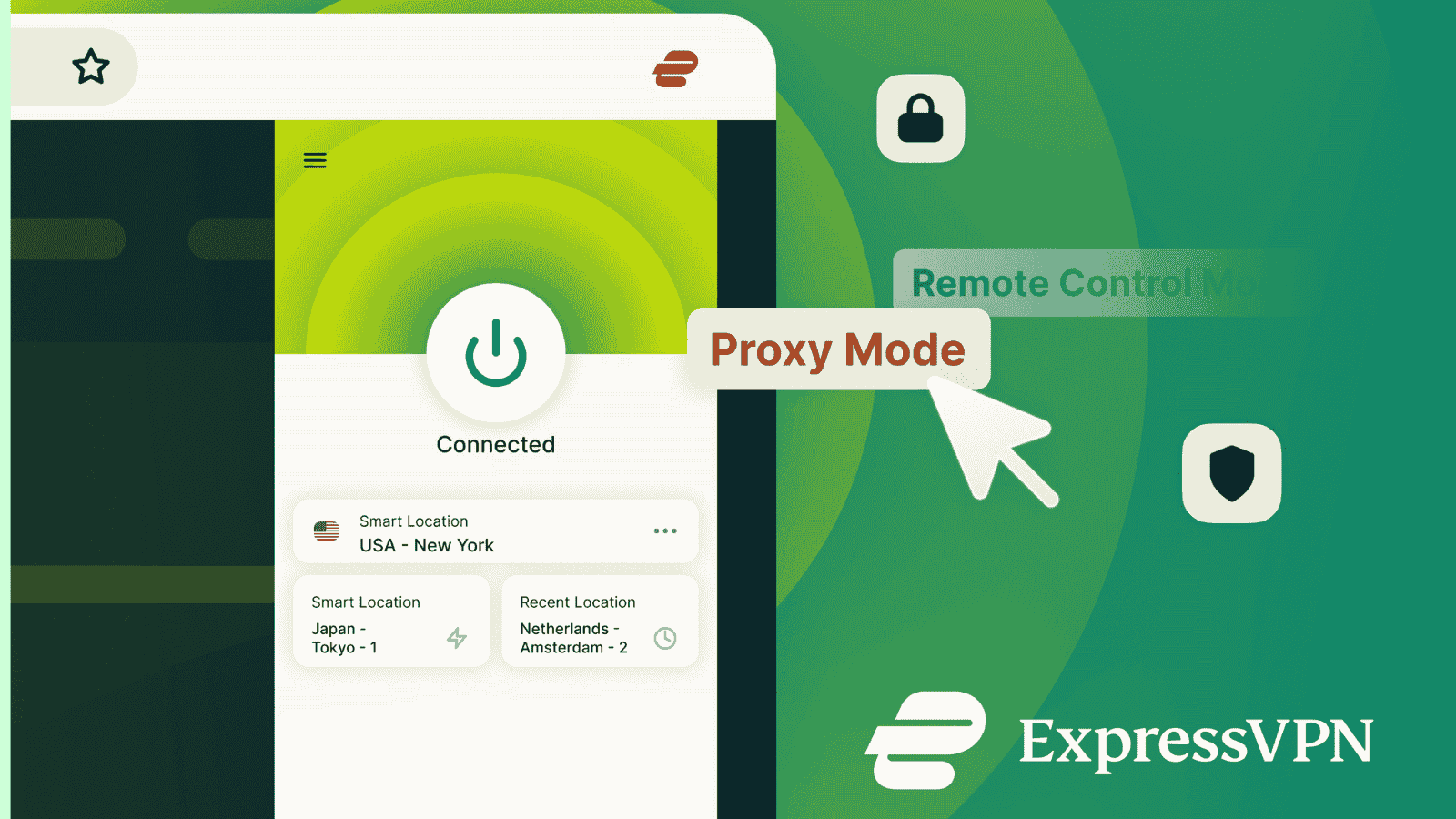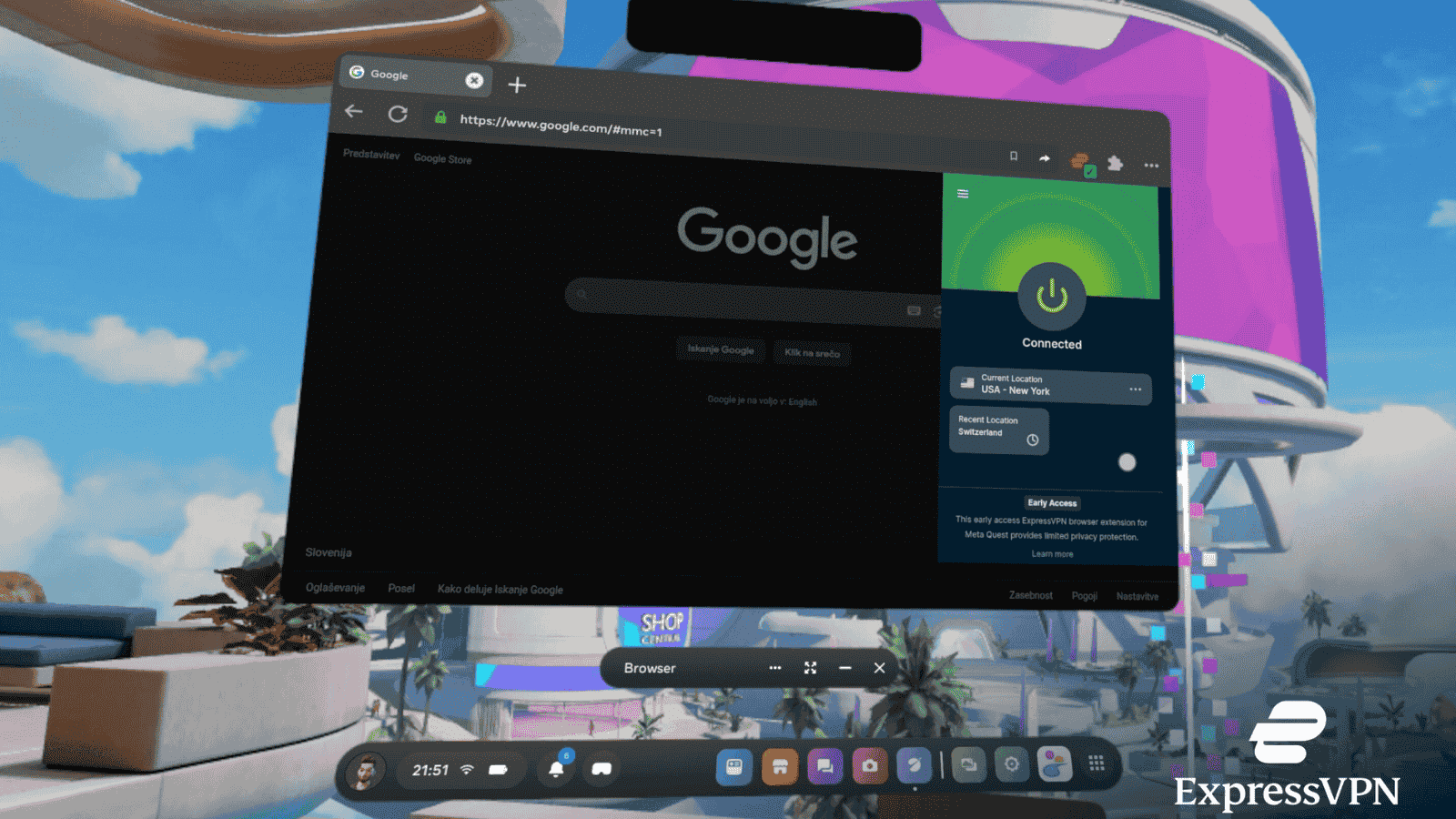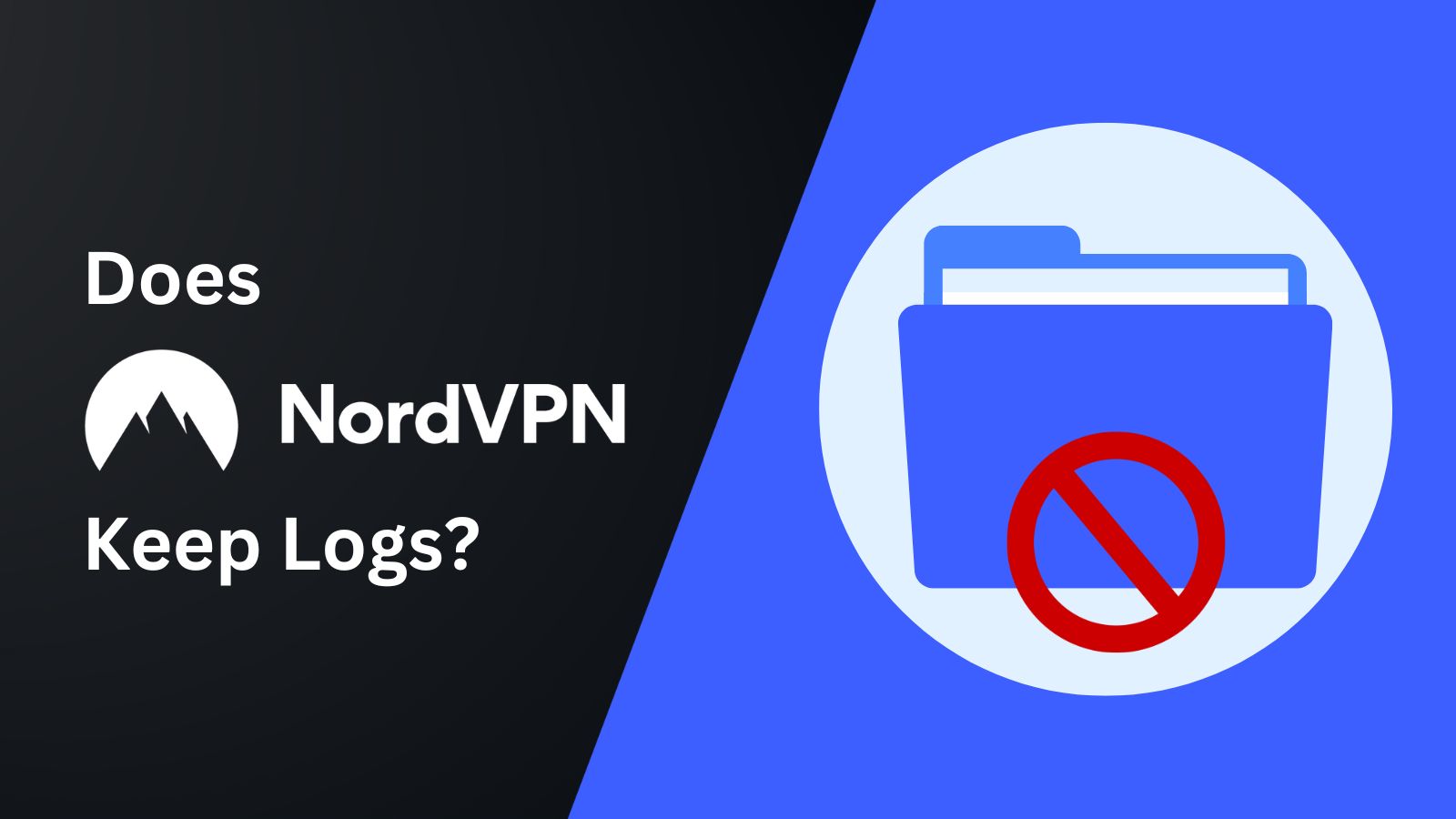
When you purchase through links on our site, we may earn an affiliate commission. Here’s how it works.
How to Change Your VPN Location
Changing your VPN location hides your real IP, protects privacy, and bypasses geo-restrictions. This guide explains how to change locations, why it matters, and the top VPNs for the job, so you can stay secure, anonymous, and access content worldwide without limits.
Can a VPN Change Your Location?
Yes, a VPN can indeed change your location (virtually, of course). This is achieved by replacing your public IP address with the IP address of a remote server.
The IP address is a unique identifier for your device on the Internet, and it carries information about your approximate geo-location. It exposes the city, state, and time zone of the router you are connected to, as well as the Internet Service Provider (ISP) you are using.
When you connect to a VPN server, your original IP is masked, and online services see the IP of the VPN server instead. This makes it appear as if you're browsing from a different location.
That said, here’s more info on the different types of location-related data your device generates and whether a VPN can change that type of data.
Virtual Locations v/s Apparent Locations
Some VPN providers offer what’s called a virtual location. This is when the VPN server’s advertised location doesn’t match its physical location. For example, a server may be physically located in one country but assign you an IP address associated with another. For a deeper dive, check out this guide: What Are Virtual Locations? (Why Some VPNs Use Them).
Apparent locations, on the other hand, are the locations that websites, apps, and online services think you are in based on your IP address and other location signals. When you connect to a VPN, your apparent location changes to match the IP address of the VPN server you choose, whether that server is in a true physical location or a virtual one.
Let's understand it with the help of a table:
How to Change VPN Location on Your Devices?
Now it is established that changing your VPN location makes it possible for you to change your apparent location, whether you’re unlocking foreign streaming libraries, grabbing region-only deals, or boosting privacy. It’s easier than you think. In this section, we’ll walk you through practical, device-specific methods so you can switch locations like a pro.
1. On PC (Windows & macOS)
Whether you're using a Windows PC or a Mac, changing your apparent location is a breeze with a reliable VPN. Here's a step-by-step guide:
- Choose a suitable VPN provider (we recommend NordVPN).
- Go to the VPN provider’s official website and download the appropriate app for your platform (Windows or macOS). Avoid third-party downloads to reduce security risks. Make sure to keep your VPN app updated for the latest security patches.
- Open the VPN application and enter your login credentials. Enable two-factor authentication (2FA) if the provider offers it to protect your account from unauthorized access.
- Before selecting a VPN server, enable key security settings within the VPN app to ensure your data stays private and your real location remains hidden.
- Kill Switch – Automatically disconnects your internet if the VPN connection drops, preventing accidental data leaks.
- DNS Leak Protection – Prevents your device from using default DNS servers that may reveal your real location.
- IPv6 Leak Protection – Blocks IPv6 traffic, which some ISPs may use to bypass VPN masking.
- Obfuscated Servers – Masks VPN traffic to look like regular internet traffic, useful in countries or networks that restrict VPN usage.
- Auto-Connect – Automatically connects the VPN on startup or when accessing public networks to avoid unprotected exposure.
- Choose a VPN server from the country you want to appear in. For faster speeds, pick a server geographically closer to you (unless spoofing a far-away location is needed).
- Once connected, your IP address will reflect the new server’s location. You can verify it using websites like whatismyipaddress.com.
- You'll now get a new IP pointing to a different location. That's it!
2. On Mobile (Android & iOS)
If you want to change your location on mobile, you can simply download and install a VPN application. Here's how you can do it:
- Sign up with a reliable VPN provider (we recommend NordVPN).
- Download the official VPN app from the Google Play Store or Apple App Store to ensure you're getting a secure and compatible version of the software. Avoid APKs or unofficial versions, as they may contain malware or spyware.
- Launch the app and log in using your VPN account. Enable biometric login or PIN lock if your provider offers it to protect your session on mobile.
- Before selecting a server, enable essential security settings in the app to safeguard your identity and prevent location leaks while connected.
- Kill Switch (if available) – Ensures your internet connection is cut off if the VPN unexpectedly disconnects.
- Auto-Connect – Automatically activates the VPN when you use public Wi-Fi or start your device.
- Split Tunneling – Lets you control which apps use the VPN, useful for keeping banking apps outside the tunnel.
- GPS Spoofing (Android only) – Some VPNs offer GPS spoofing to match your IP-based location with a fake GPS location.
- Tracker & Ad Blocker – Blocks intrusive trackers and ads that may reveal your location or behavior.
- Select a VPN server in the country you want to appear in. The closer the server is to your actual location, the better the performance in most cases.
- Once connected, your apparent location will reflect the chosen server. Use whatismyipaddress.com to confirm the change.
Best VPNs to Change Your Location
A high-quality VPN allows you to switch to servers worldwide instantly, unlocking geo-restricted sites (which can only happen if you have a VPN with most server locations) and enhancing your online privacy. Look for one with a large server network, fast speeds, and reliable performance.
Security matters too, therefore, choose a VPN with strong encryption and robust protocols, a no-logs policy, a kill switch, obfuscation, and 24/7 support. Compatibility across devices and a money-back guarantee make it even better. Based on these criteria, here are the 3 best VPNs for changing your location.
1. NordVPN
NordVPN is the best VPN for changing your location with minimal effort. It is popular for its built-in double hop and split tunneling features to cater to advanced users and boasts an impressive network of 8,900+ servers in 129 countries. This gives you a broad selection of apparent locations to choose from.
NordVPN is known for its ability to bypass geo-restrictions, making it an excellent choice for accessing region-specific content. It also offers protocols like NordLynx (WireGuard-based), OpenVPN, IKEv2/IPsec, and NordWhisper, as well as its proprietary protocol called NordLynx, which is built around the WireGuard protocol.
The security and privacy of NordVPN are very robust, as it comes with a no-logs policy, strong AES-256-GCM, ChaCha20, and Post-Quantum Encryption (NordLynx Protocol) encryption, obfuscated servers, and a kill switch. Currently, it is one of the fastest VPNs available on the market.
It supports up to 10 simultaneous connections and is compatible with a wide range of devices, including computers, phones, and more. Lastly, NordVPN provides 24/7 customer support and a 30-day money-back guarantee. You may pay $3.09 per month for a vpn nordvpn pricing_group|0|intervals|0|interval] subscription plan.
PROS
- 8,900+ servers in 129 countries.
- Built-in double-hop security.
- Split tunneling support.
- Fast NordLynx protocol.
- Strong AES-256 and ChaCha20 encryption.
- Strict no-logs policy.
- Obfuscated servers are available.
- Kill switch for extra safety.
- 10 simultaneous connections.
- 24/7 live chat support.
- 30-day money-back guarantee.
CONS
- Highly remote servers can be slow.
- Slightly higher price than budget VPNs.
2. Surfshark
Surfshark presents a highly interesting user-friendly VPN service to change your location, and it comes with a network of 4,500+ servers in 100 countries. However, it's also known for its ability to bypass any geo-block, giving you access to a more open Web.
It's powered by protocols such as WireGuard, IKEv2, and OpenVPN. Since it uses high-end encryption AES-256-GCM (OpenVPN and IKEv2), ChaCha20 (WireGuard), and Post-Quantum Encryption (WireGuard), you can rest assured that your privacy is protected well, no matter which VPN location you pick. Of course, an audited no-logs policy is there as well.
More advanced features are also on offer, including a kill switch, obfuscation, split tunneling, as well as multi-hop servers. Despite being heavy on more advanced features, this VPN is still one of the fastest VPNs available today.
Next, you'll get unlimited simultaneous connections, as well as 24/7 live chat support, which is complemented by various other support channels. And let's not forget that your purchase will be backed by a 30-day money-back guarantee. If you are interested in it, and all you have to do is pay $1.99 per month for a period of 24 months.
PROS
- 4,500+ servers in 100 countries.
- unlimited simultaneous connections.
- Audited no-logs policy.
- AES-256 and ChaCha20 encryption.
- Split tunneling feature.
- Multi-hop servers.
- Obfuscation for censorship bypass.
- 24/7 live chat support.
- Works on all major devices.
- 30-day money-back guarantee.
CONS
- Can take a while to connect.
- Fewer servers than NordVPN.
3. ExpressVPN
ExpressVPN is a high-end VPN service that operates a network of an undisclosed number of servers in 105 countries. This implies it gives you many places to change your apparent location. It also excels in unblocking geo-restricted content, making it an excellent choice for accessing content from various regions.
This VPN employs robust security measures, including a strict no-logs policy, top-notch encryption (AES-256 and ChaCha20/Poly1305), and support for multiple VPN protocols (OpenVPN, Lightway, and IKEv2). Advanced users will further appreciate the availability of obfuscated servers, a kill switch, and split tunneling. However, it does not come with built-in multi-hop or double-hop features.
In terms of performance, ExpressVPN is renowned for its speed and reliability, ensuring a seamless online experience. It allows up to 10-14 simultaneous connections and supports a wide range of devices.
On top of that, ExpressVPN offers 24/7 customer support and a 30-day money-back guarantee, further solidifying its reputation as a top-tier VPN service. Looking forward to buy its plan? Jus pay $2.44 per month for 24 months period.
PROS
- undisclosed number of servers in 105 countries.
- 10-14 simultaneous connections.
- Obfuscated servers.
- Split tunneling support.
- Works on all major devices.
- Lightway protocol for speed.
- AES-256 and ChaCha20 encryption.
- Strict no-logs policy.
- Very fast and reliable.
- 24/7 live chat support.
- 30-day money-back policy.
CONS
- Limited customization.
- Server count undisclosed.
Should You Rely on a Free VPN For Changing Your Location?
Using a free VPN might sound like a convenient and cost-effective, but it comes with serious limitations and potential risks. While some free VPNs offer basic IP masking, they often lack the reliability, speed, and security features necessary to effectively hide or change your location. Worse, some may log your data or even sell your browsing habits to third parties. Here's a breakdown of how free VPNs compare to paid VPNs when it comes to changing your location safely and successfully:
Free VPNs may seem tempting, but they are not good. Many of them make money by collecting and selling your data, including your browsing history.
On the other hand, a reliable premium VPN not only protects your privacy but also easily unblocks dating apps, streaming services, and region-locked content, without compromising your security. The best way, as per our experts, is to move ahead with a free trial of a premium VPN.
Why You Need to Change Your VPN Location?
If you need to change your VPN location for privacy protection, bypass geo-restrictions, or get better prices, a VPN can be your ticket to a more open and secure Internet. Here are some use cases that might resonate with you:
- Privacy Protection: Changing your VPN location can help protect your privacy by masking your real IP address. This makes it harder for third parties to track your online activities.
- Unblocking Geographically Restricted Sites: Streaming services like Hulu and Max are only available in the United States. A VPN allows you to bypass their geo-restrictions, allowing you to access these services from anywhere.
- Accessing Geo-Restricted Video Game Servers: Some online games, like Valorant, have geo-restricted servers that prevent players from different regions from playing together. With a VPN, you can bypass such restrictions and play in the same lobby as your friends from another region.
- Better Prices When Shopping Online: Did you know that online prices can vary based on your location? By changing your VPN location, you might find better deals and save money. Make sure to check out these latest deals to get maximum discounts.
- Bypassing Government Censorship: Governments in countries like China, Iran, UAE, and Myanmar have heavily censored the Internet. If you live in such a country, you can bypass the censorship and access the Internet using a VPN.
- Unblock VoIP Calls: Countries like the UAE and China block messaging and VoIP services, such as WhatsApp and Skype. A VPN can help you unblock such services, allowing you to keep in touch with friends and family.
Why Is My VPN Not Changing My Location?
There could be several reasons why your VPN is not changing your location. It could be due to a leak in your IP or DNS, or it could be because of some settings on your device. Here are some of the common location-related issues and how to resolve them:
Final Thoughts
VPN is one of the most effective tools to change your apparent location and protect your privacy online. By masking your real IP address with that of a remote server, it tricks websites, apps, and even some government systems into thinking you're browsing from a completely different region.
However, not all location data is tied to your IP. GPS, DNS, and browser-based geolocation can still reveal your true whereabouts unless properly handled. That’s why using a reputable VPN with robust privacy features like DNS leak protection, kill switch, obfuscated servers, and even GPS spoofing (on Android) is essential.
While free VPNs may offer a temporary fix, they’re often unreliable, slow, and privacy-invasive. If your goal is to access restricted content, stay anonymous, or even save money while shopping online, a premium VPN is the smarter, safer, and more powerful choice.
We recommend NordVPN if you want to change location because it offers a huge network with fast and stable servers. On top of that, it also comes with a 30-day money-back guarantee, which means you can try it risk-free.
Explore These Helpful VPN Guides:
- Top 6 VPNs for Travel – Find secure and reliable VPNs designed for travelers to safely use public Wi-Fi and access content abroad.
- Change Location on Android – Follow our step-by-step guide to switch VPN servers on Android devices.
- Change Location on iPhone – Learn how to quickly change your VPN location on iOS for better access.
- Best No-Log VPNs for Anonymous Browsing – Explore VPNs that guarantee zero data logging to keep your online activity completely private.
- Free vs. Paid vs. Free Trial VPNs: Which Should You Choose? – Compare the pros and cons of each type to find the best balance of privacy, features, and value.
- Top 6 Budget-Friendly VPNs – Affordable VPNs that deliver great performance without sacrificing speed, privacy, or essential features.
- Best VPNs for Torrenting – Secure, high-speed VPNs optimized for anonymous P2P file sharing and safe torrent downloads.
- How to Bypass Blackout Restrictions in 2026 – A practical guide to unblocking sports blackouts and accessing region-locked content with a VPN.
- Top 5 VPNs for Unblocking Geo-Restricted Content – The best VPNs for streaming content and visiting websites restricted by region.
- How to Unblock Blocked Websites – A step-by-step guide to bypassing restrictions and accessing any website, even if it’s blocked by your ISP, network, or country.
- How Google Knows Your Location When Using a VPN – An in-depth look at the tracking methods Google uses and how to protect your privacy online.
We hope you learned everything about changing your VPN location from this article. If you have anything to add, feel free to share it with us in the comments.

